What’s happening in Bangladesh? Student protest that led to PM Sheikh Hasina’s ouster explained
Deadly protests end Sheikh Hasina’s 15-year grip on power, sending her in exile
Your support helps us to tell the story
From reproductive rights to climate change to Big Tech, The Independent is on the ground when the story is developing. Whether it's investigating the financials of Elon Musk's pro-Trump PAC or producing our latest documentary, 'The A Word', which shines a light on the American women fighting for reproductive rights, we know how important it is to parse out the facts from the messaging.
At such a critical moment in US history, we need reporters on the ground. Your donation allows us to keep sending journalists to speak to both sides of the story.
The Independent is trusted by Americans across the entire political spectrum. And unlike many other quality news outlets, we choose not to lock Americans out of our reporting and analysis with paywalls. We believe quality journalism should be available to everyone, paid for by those who can afford it.
Your support makes all the difference.Nobel laureate Muhammad Yunus took the oath of office as head of an interim government in Bangladesh after large-scale protests led to the ouster of prime minister Sheikh Hasina.
The prominent economist, 84, was sworn in as chief adviser of the government at the presidential palace in Dhaka.
Sixteen other members are part of the new cabinet, including two student leaders who spearheaded the protests that ended the 15-year-long rule of Ms Hasina.
Mr Yunus arrived in the country on Thursday and made an emotional appeal to the people of Bangladesh to immediately stop retaliatory attacks against figures from the former Hasina administration.
“Violence is our enemy. Please don’t create more enemies. Be calm and get ready to build the country,” Mr Yunus said as he greeted supporters with a smile.
He was out of the country on Monday when Ms Hasina dramatically resigned and fled to India, after tens of thousands of protesters took to the streets demanding her resignation following a deadly police crackdown on protesters.
At least 440 people, including minors, have been killed in the violence that ensued in July during protests against job reservations for families of 1971 war heroes, according to local reports.
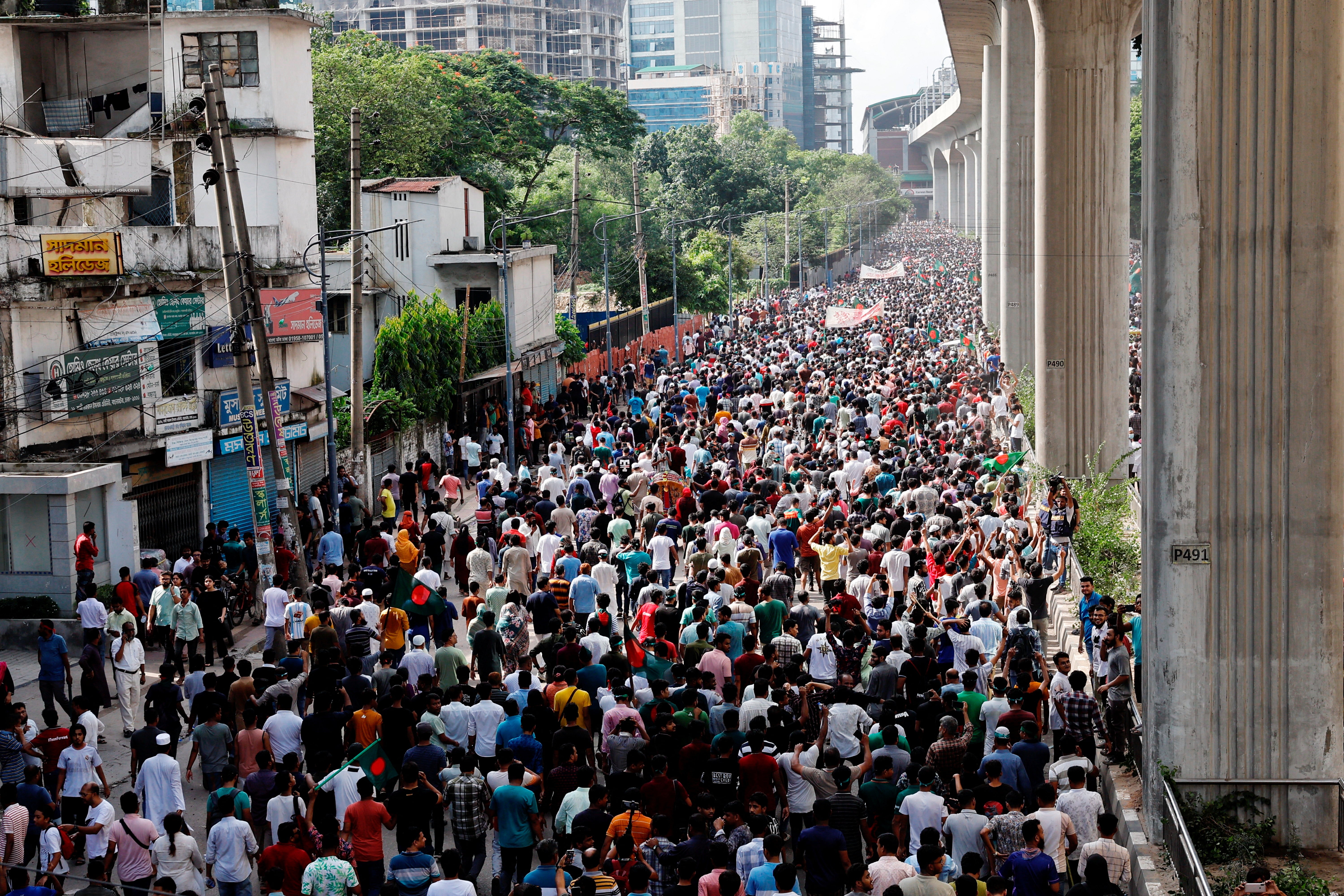
Indian foreign minister S Jaishankar said she had been given approval to remain “for the moment”. The prime minister escaped from Dhaka on a military transport minutes before thousands of people stormed into her official residence and ransacked it.
Her resignation triggered jubilation across the country along with incidents of violence against the ruling party members and the minority Hindus. Fresh protests broke out in a Dhaka neighbourhood on Wednesday when hundreds of officials from the central bank forced four of its deputy governors to resign over alleged corruption.
The protest leaders said members of the interim government would be finalised soon as Mr Yunus called for new elections to bring “stability” to the country grappling with unemployment and economic crisis.
“It is critical that trust in government be restored quickly,” he told the Financial Times in a statement. “We need calm, we need a road map to new elections and we need to get to work to prepare for new leadership,” Mr Yunus said.
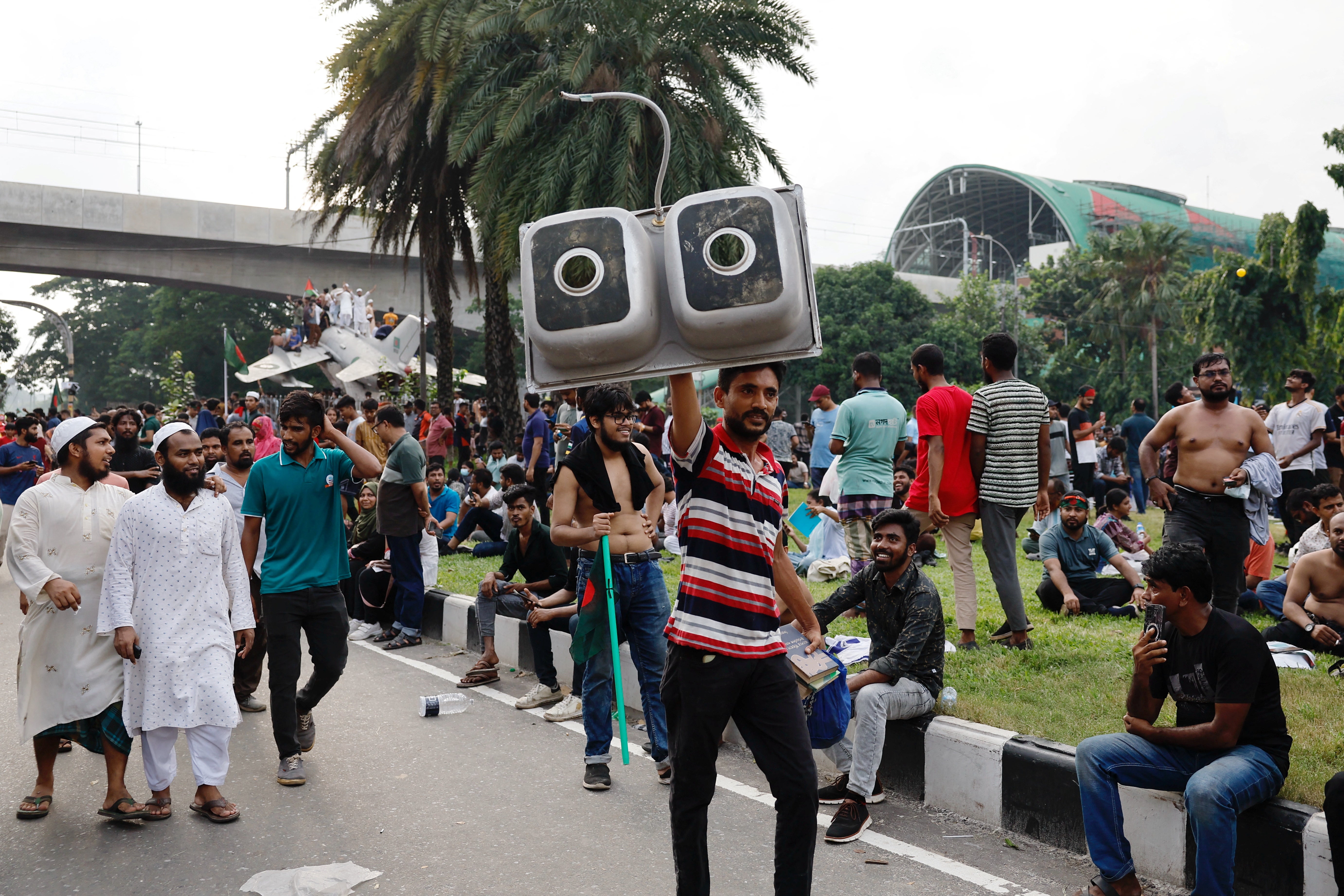
Mirza Fakhrul Islam Alamgir, member of the Bangladesh Nationalist Party (BNP), has demanded a fresh election in the next three months to form a government.
Bangladesh, the fourth largest country in the world by population, has been on edge for weeks amid protests that began over a controversial quota system for government jobs. The system guaranteed a set proportion of roles to the descendants of fighters in Bangladesh’s war of independence – seen as a measure to appease Ms Hasina’s political base.
A fresh spell of protests began over the weekend with people demanding Ms Hasina’s resignation, and over 100 people died across the country on Monday in the deadliest day of violence since the crisis began, with hundreds of people injured as both police and protesters used live ammunition.
Why were students protesting?
At the heart of the student protests that began in late June was the demand to scrap a quota system that reserved up to 30 per cent of government jobs for relatives of veterans who fought in Bangladesh’s war of independence in 1971 against Pakistan.
The protests began late last month but tensions escalated when students at Dhaka University, the country’s largest, clashed with police and a counter-protest inflamed the situation.
The students alleged the protests were peaceful until the student wing of Ms Hasina’s ruling Awami League party attacked them.
“We were protesting peacefully until we were attacked by the goons. It is our right to continue protesting, it is embedded in the history of this country and we shall continue to do so for our right,” a Dhaka university student who did not want to be named for fear of persecution told The Independent.
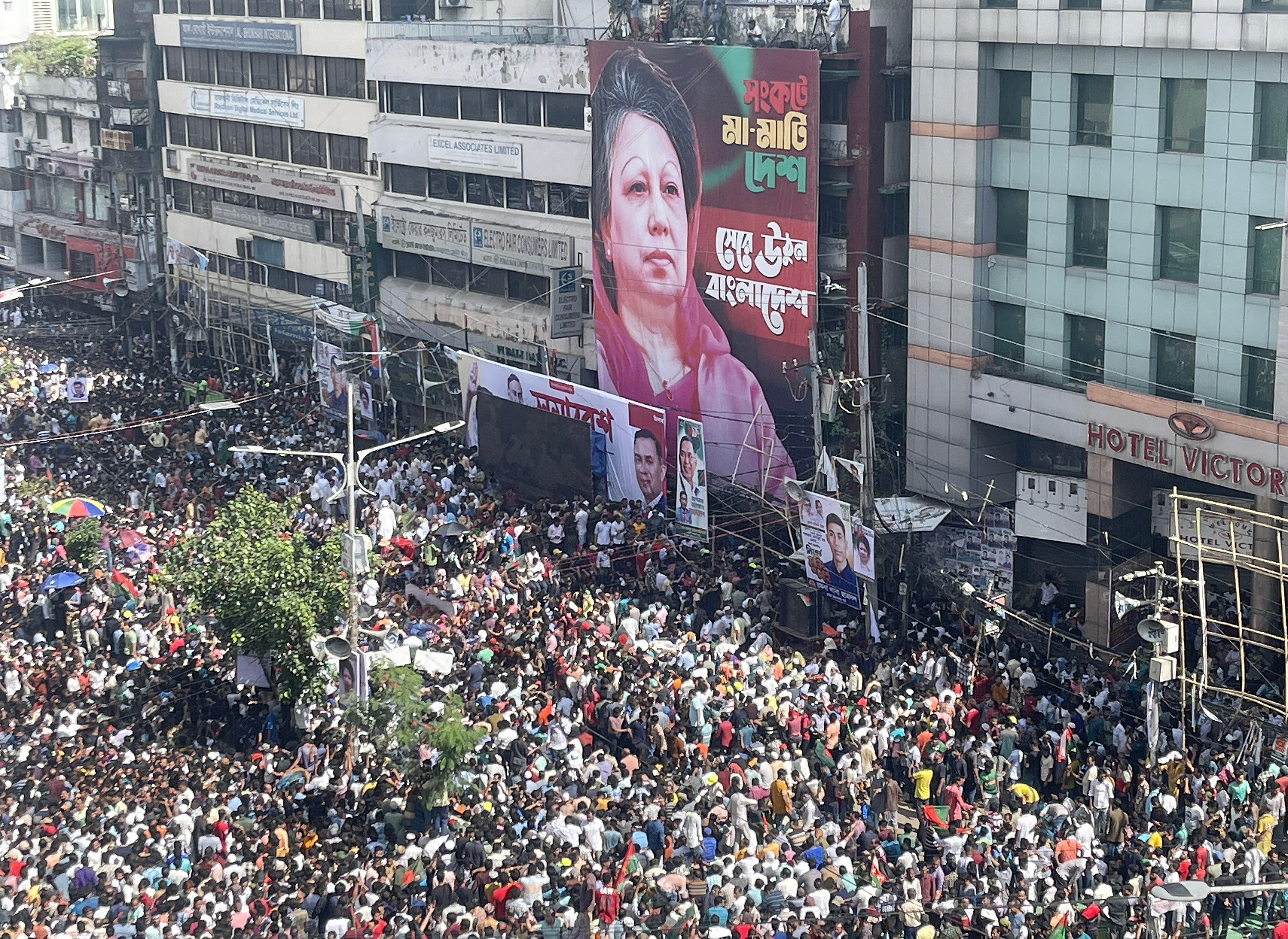
Protesters have argued that the quota system was discriminatory and benefitted supporters of Ms Hasina, whose political party led the independence movement. They demanded it be replaced with a merit-based system.
Ms Hasina’s government had halted the job quotas following mass student protests in 2018, but last month a high court ruling nullified that decision and reinstated the quotas after relatives of the 1971 veterans filed petitions.
On 21 July, the Supreme Court ordered that 93 per cent of government jobs would be allocated on merit and five per cent would be for veterans who served in the war. The remaining two per cent would be reserved for members of ethnic minorities and transgender and disabled people.
The decision was a partial win for the students after representatives from both sides met late on 19 July to discuss a resolution.
Why did Hasina resign?
The student protests have shone a spotlight on the cracks in Bangladesh‘s governance and economy as well as the frustrations of the country’s youth at rising unemployment where some 32 million young people are not in work or education.
Anger soon turned from demands over jobs to outrage at the way the protests were treated, with Ms Hasina referring to the protesters as “terrorists” and ordering police to shoot at them on sight.
“We have to look out for ourselves and our future generations. We need jobs in this country, we are already suffering from the lack of it,” said Alam Rashid, a student from Dhaka. “We have invited the government to have a conversation with us multiple times, instead she [Sheikh Hasina] just unleashed her police force on us,” he told The Independent.
During the weekend, there were reports of attacks across the country, including incidents of vandalism and arson targeting government buildings, offices of the ruling Awami League party, police stations and houses of public representatives. Clashes were reported in as many as 39 of the country’s 64 districts.
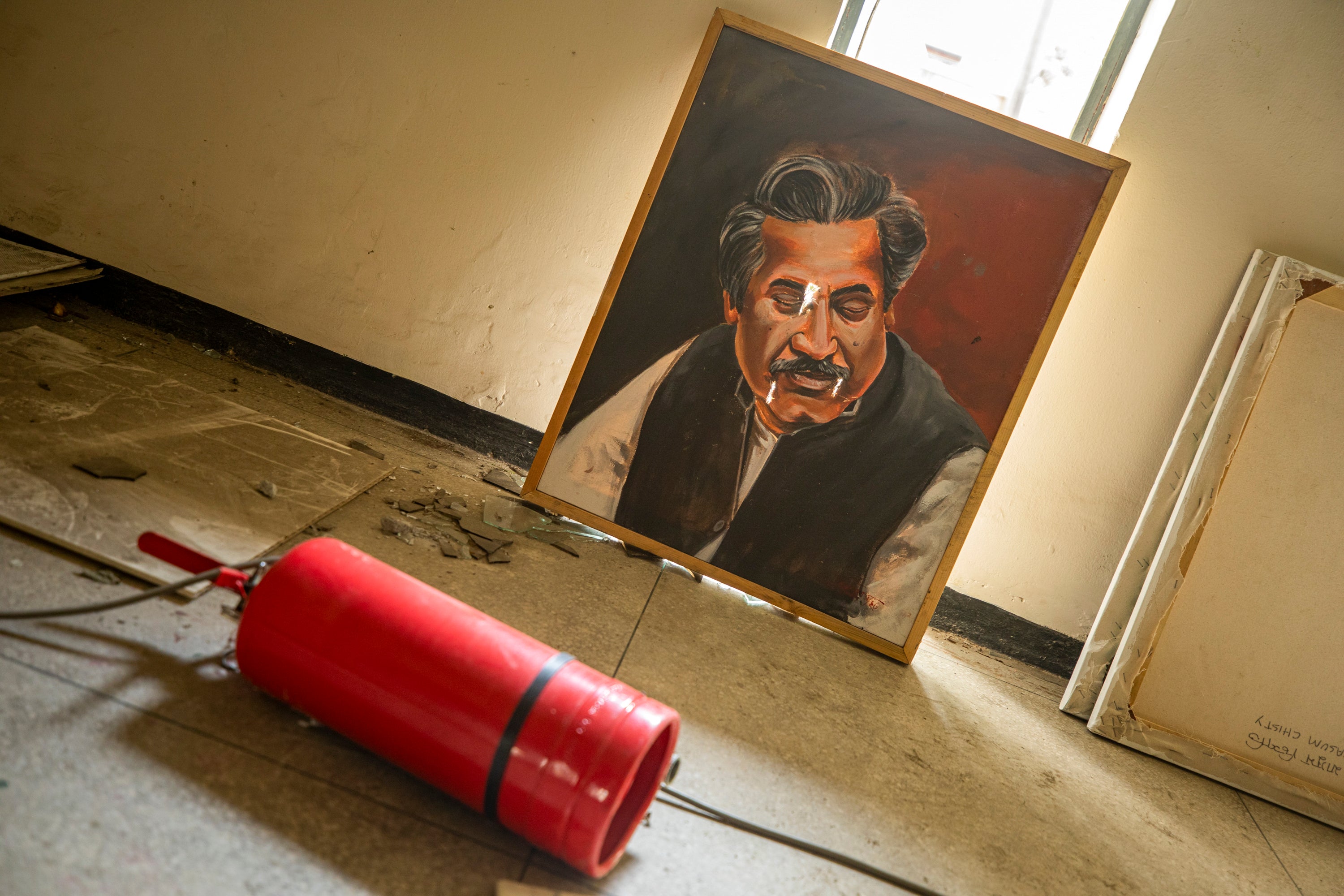
Sunday ended up being one the deadliest days of clashes yet, with at least 95 killed including both protesters and police officers.
Student coordinators of Dhaka University called for Monday to be marked by a “March to Dhaka”, calling it the “final answer” after the military said students defying a government curfew would face the “full force of the law”.
On Monday, 135 more people were killed as hundreds of thousands of people defied curfew to take over the capital. The military reportedly asked Ms Hasina to resign after top brass refused to order soldiers to open fire on more demonstrators.
Where will Hasina go?
Ms Hasina is currently at a “safe house” in India’s capital region after she landed at the Hindon Indian Air Force base outside Delhi. Multiple Indian media cited official sources as saying she is keen on going to the UK, and has submitted a request for political asylum.
“She is going to stay in Delhi for some more time,” her son, Sajeeb Wazad, told Detusche Welle. He added that his mother had not made a decision on where she would seek asylum yet.
He said that her mother will return to her country when its new caretaker government decides to hold elections and vowed that his family and the Awami League party would remain engaged in Bangladesh’s politics.
British officials have reportedly downplayed the chances of Ms Hasina being accepted in the UK, stating that the country’s immigration rules do not permit anyone, including a fleeing prime minister, to seek asylum or temporary refuge.
Ms Hasina was accompanied when she left Dhaka by her sister Sheikh Rehana Siddiq, who is the mother of Labour MP Tulip Siddiq.
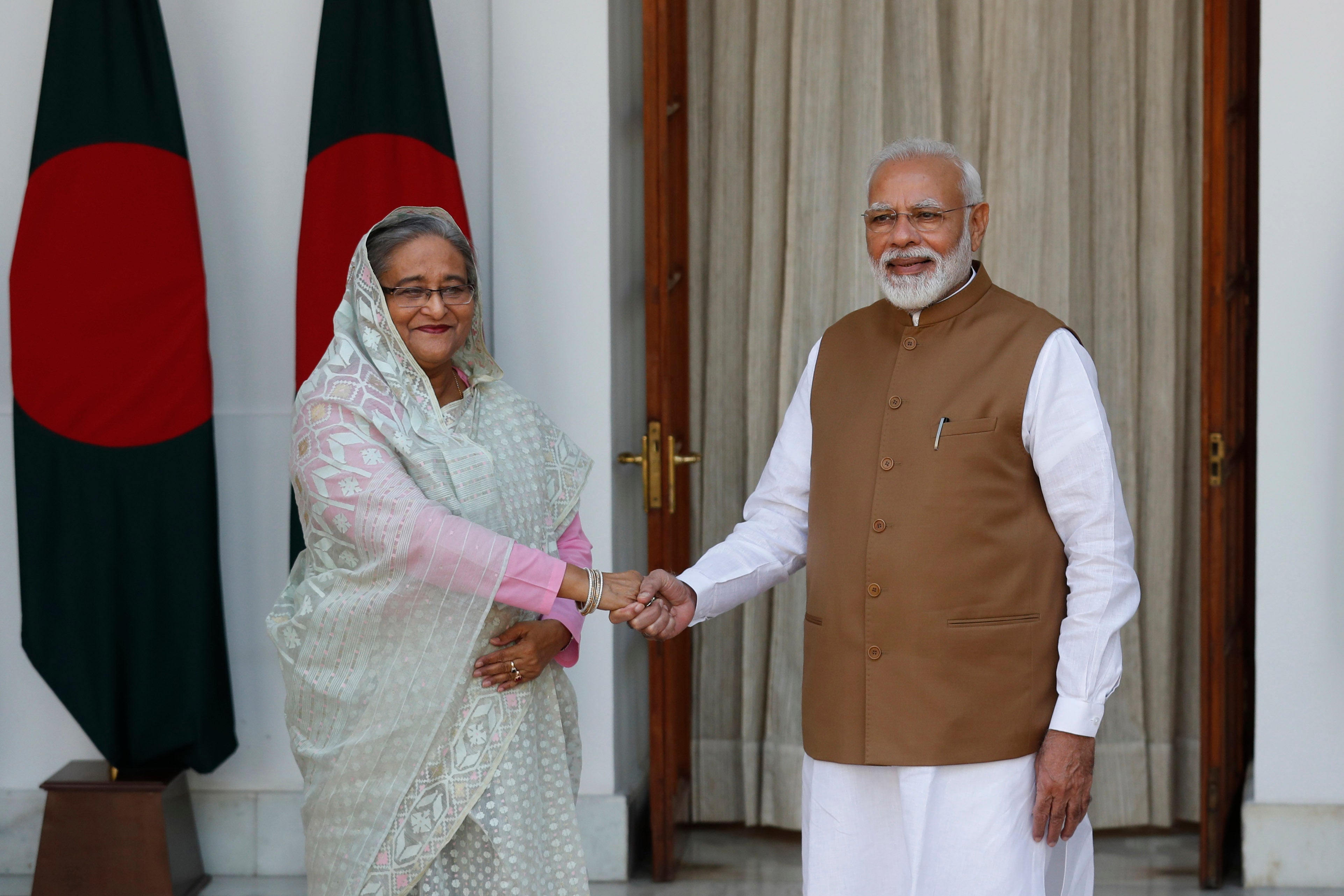
The UK government has hardly been sympathetic towards Ms Hasina and on Monday British foreign secretary David Lammy called for a UN-led investigation into the way her government cracked down on the protests and the “tragic” loss of lives in Bangladesh.
CNN News18 said Ms Hasina is in the process of applying for asylum in other European countries, given the UK appears to be hesitant.
What’s next for Bangladesh?
After Ms Hasina’s resignation, army chief General Waker-Uz-Zaman announced in a televised address to the nation that an interim government would be formed.
He said he was assuming control at “a critical time for our country” and urged people to trust him.
“I am taking responsibility now and we will go to the president and ask to form an interim government to lead the country in the meantime.”
It was not clear if the army would play a role, but General Zaman said: “We will now go to the president of the country, where we will discuss about the formation of the interim government, form the interim government, and manage the nation.”
On Tuesday, Bangladesh’s parliament was dissolved, the president’s office said in a statement.
It was after student leaders spearheading the protest issued a strict deadline and asked “revolutionary students to be ready” if their demand was not met. They have said they will not accept any government unless it is made up of candidates recommended by them.
“We wouldn’t accept any army-supported or army-led government,” they said.
Main opposition leader Mirza Fakhrul Islam Alamgir on Wednesday said Bangladesh must hold a general election within three months to form a new government. Mr Alamgir’s BNP was among the opposition parties to have boycotted the January elections citing a crackdown on political dissent that secured a fourth term for Ms Hasina.
Bangladesh’s borders have effectively been closed while the political uncertainty is being resolved, with major airlines suspending flights to Dhaka and long distance bus services suspended. Train services to neighbouring India, which were first paused in mid-July as the protests turned violent, have now been suspended indefinitely.
Amid fears of violence on the India-Bangladesh border, the Bangladeshi security forces said they have “received strict instruction from the government to not allow anyone into the country without valid documents”.
Bangladesh’s biggest police union, the Bangladesh Police Service Association (BPSA), defended the conduct of its officers during the protests and declared a national strike on Tuesday in view of the security situation in the country.
“Until the security of every member of the police is secured, we are declaring a strike,” BPSA said in a statement.
Who is Muhammad Yunus, the new interim leader?
The student protest leaders proposed the name of the 84-year-old microlending champion to become the head of the interim government in Bangladesh, which the president accepted after deliberation with stakeholders.
“Given the sacrifices of the students, especially those who have lost their lives for our nation’s liberation, I am not in a position to say no to them,” Mr Yunus said.
“In the coming days, I will talk with all of the relevant parties about how we can work together to rebuild Bangladesh and how they can help,” he added.
“I have no intention to seek any elected or appointed office beyond this role during this interim period.”
Mr Yunus, one of Ms Hasina’s staunchest critics, was charged in more than 200 cases, including forgery, money laundering, and embezzlement during the ruling years of Ms Hasina.
Mr Yunus has been credited for helping lift millions out of poverty by providing small loans of less than £80 to rural people through his Grameen Bank, which was founded in 1983. The bank’s success in lifting people out of poverty led to similar microfinancing efforts in other countries.








Join our commenting forum
Join thought-provoking conversations, follow other Independent readers and see their replies
Comments